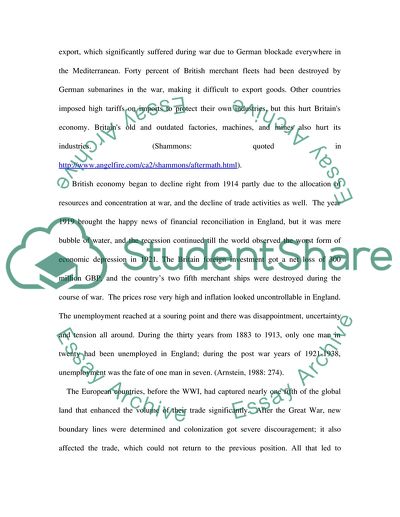Cite this document
(Post-War Economic Crisis in the UK Assignment Example | Topics and Well Written Essays - 2250 words, n.d.)
Post-War Economic Crisis in the UK Assignment Example | Topics and Well Written Essays - 2250 words. Retrieved from https://studentshare.org/macro-microeconomics/1539929-evaluate-the-response-of-the-lloyd-george-government-to-the-post-war-economic-crisis-in-britain
Post-War Economic Crisis in the UK Assignment Example | Topics and Well Written Essays - 2250 words. Retrieved from https://studentshare.org/macro-microeconomics/1539929-evaluate-the-response-of-the-lloyd-george-government-to-the-post-war-economic-crisis-in-britain
(Post-War Economic Crisis in the UK Assignment Example | Topics and Well Written Essays - 2250 Words)
Post-War Economic Crisis in the UK Assignment Example | Topics and Well Written Essays - 2250 Words. https://studentshare.org/macro-microeconomics/1539929-evaluate-the-response-of-the-lloyd-george-government-to-the-post-war-economic-crisis-in-britain.
Post-War Economic Crisis in the UK Assignment Example | Topics and Well Written Essays - 2250 Words. https://studentshare.org/macro-microeconomics/1539929-evaluate-the-response-of-the-lloyd-george-government-to-the-post-war-economic-crisis-in-britain.
“Post-War Economic Crisis in the UK Assignment Example | Topics and Well Written Essays - 2250 Words”. https://studentshare.org/macro-microeconomics/1539929-evaluate-the-response-of-the-lloyd-george-government-to-the-post-war-economic-crisis-in-britain.


